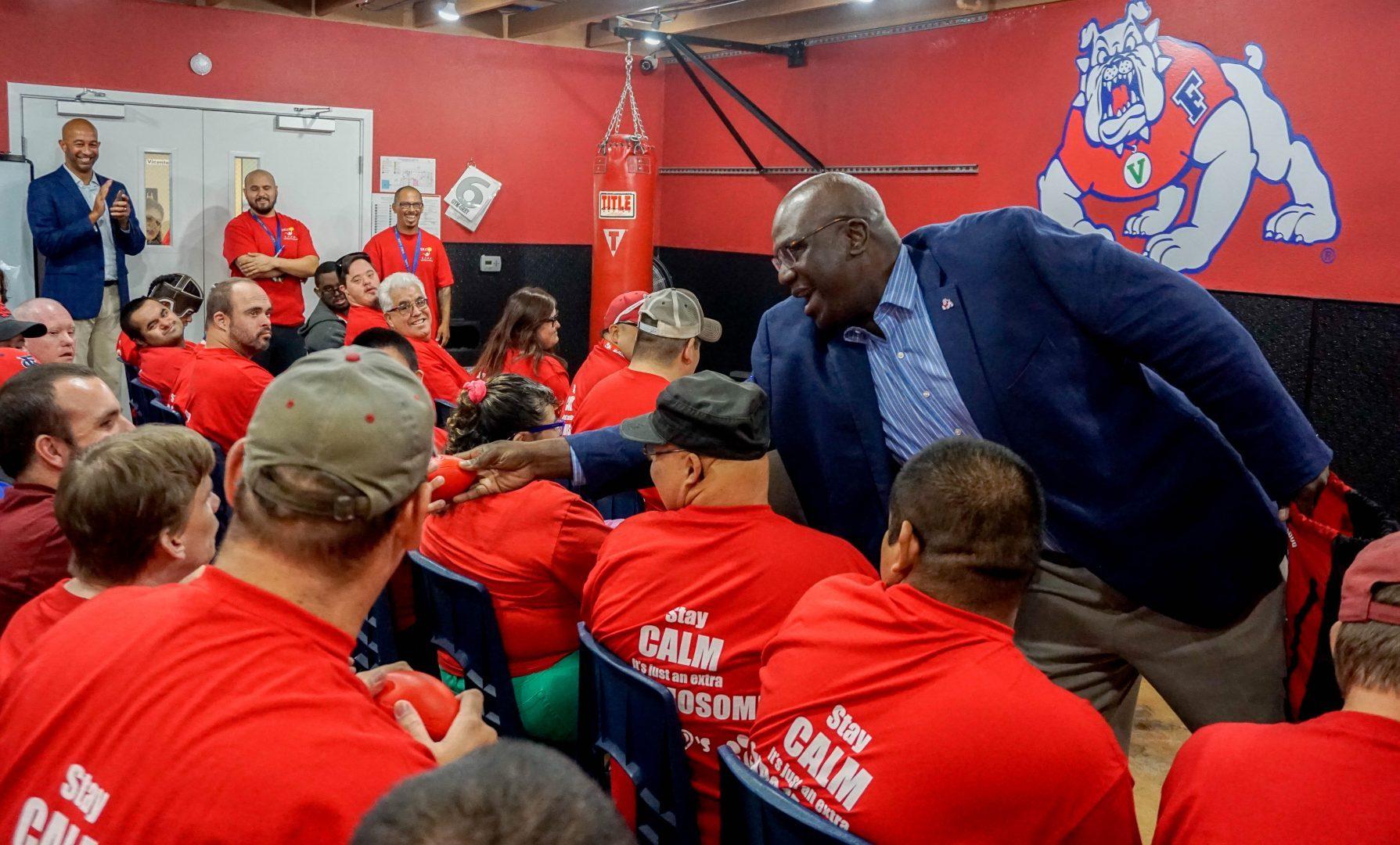On Friday, Fresno State Athletics made the difficult decision to cut three programs by the end of the academic year ”” women’s lacrosse, men’s tennis and wrestling.
The cuts are the result of ongoing financial challenges and revenue loss from the COVID-19 pandemic.
Fresno State President Dr. Joseph I. Castro said in a press conference the deficit athletics faced was “exacerbated” by the COVID-19 pandemic and important for the university to be in the position to invest more funds to balance athletics’ budget.
Before the COVID-19 pandemic, Fresno State Athletics averaged an operating deficit of approximately $2.2 million. However, the pandemic has grown the operating deficit to a total of $6.6 million, three times the average annual deficit. The deficit could continue to grow as long as the pandemic affects athletics.
With the cuts to all three programs, Fresno State Athletics expects an overall annual savings of approximately $2.5 million.
In 2018-19, the university support covered nearly 50% of the athletic department’s budget, totaling around $20 million dollars. However, going into this year before the pandemic, Fresno State Athletics lost a total of $2 million of financial support from the university. Since Castro became president of the university, he has consistently increased supporting funds to the athletic department.
Those funds, according to Chief Financial Officer Debbie Adishian-Astone, went to additional sports teams, facilities, deferred maintenance, cost of attendance and scholarships for student-athletes. Since the budget for athletics has been operating at a deficit over the past few years, university support cannot continue to increase, according to Adishian-Astone.
Fresno State Athletics is an auxiliary organization that is required to be self-supporting and have a balanced budget, but in the past few years has failed to do so.
Director of Athletics Terry Tumey stated during the conference that “that this was the most equitable and best path forward for [Fresno State Athletics].” He double-downed that the decision was not based on the sports themselves and their performance, but making sure athletics was “financially solvent” in the long-run.
Fresno State could continue to see a dip in revenue, as fans will not be able to attend athletic events, especially for football which is the university’s highest revenue earner. Football accounts for nearly 70% of the athletic department’s revenue.
Due to the current mandate set by California Gov. Gavin Newsom, California’s color-coded tier system, won’t allow for fans to attend live sporting events while in any of the tiers.This means losses in concessions, merchandise, tailgating revenue and ticket sales.
Another potential loss that can affect the deficit is the return of sports in the spring. For the fall sports that may play in the spring, travel costs for all the programs competing have to be taken into consideration.
During the conference, Castro was asked if there should be an expectation of more cuts coming to Fresno State Athletics. He stated that he hopes “there will not be a need to reduce more programs.”
“We’re planning through this decision to strengthen the department so when we get through COVID, it will have, hopefully, a balanced budget, and that will enable us to support the remaining 18 programs so they can compete at the highest level,” Castro said.
With the recent cuts, Fresno State now only sponsors 18 NCAA Division I sports, with six of those being men’s sports and 12 being women’s. If there were to be any additional cuts in the future, Fresno State Athletics would have to make sure its decision complies with the rules set forth by the NCAA to ensure competitive balance and gender equity.
According to the NCAA, Division I institutions have to sponsor at least seven sports for men and seven for women (or six sports for men and eight for women) with two team sports for each gender.
Both Castro and Tumey expressed their disappointment that all three sports couldn’t be retained. Tumey said he felt that Friday’s decision was a “personal loss.”
“This is a day in which we are truly reflective and looking at how we can get through this for the betterment of the university moving forward and our athletic department,” Tumey said. “However, we also think this a decision for the greater good as we move forward in our responsibilities to our university and community that we serve.”




